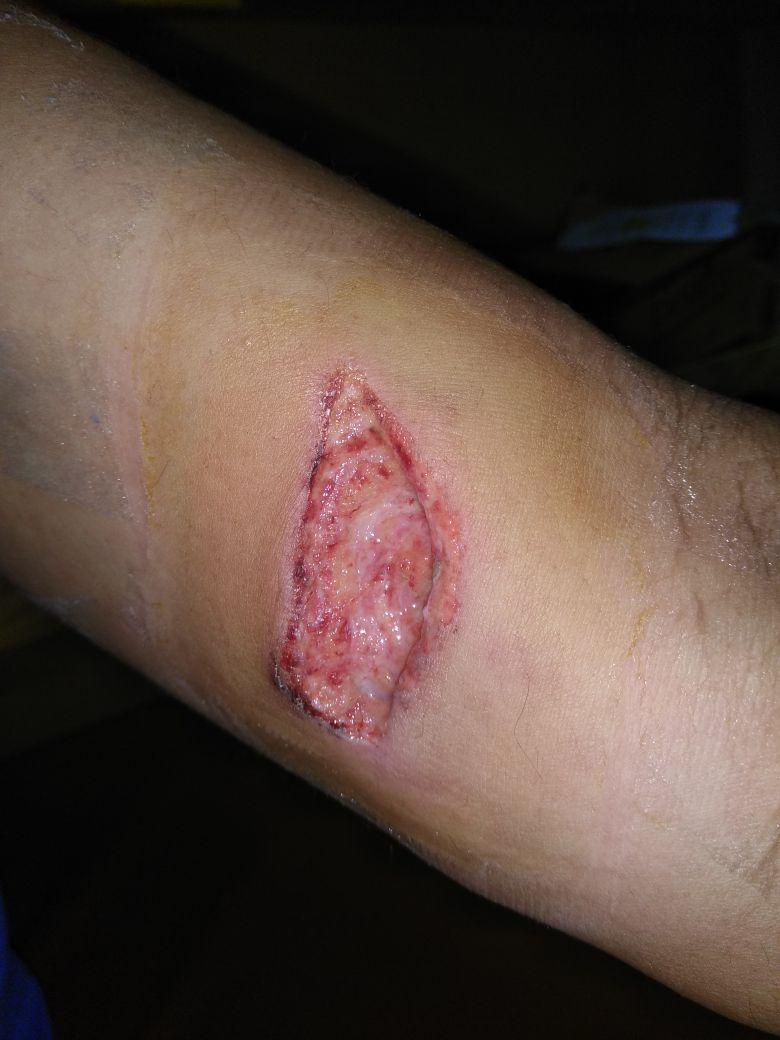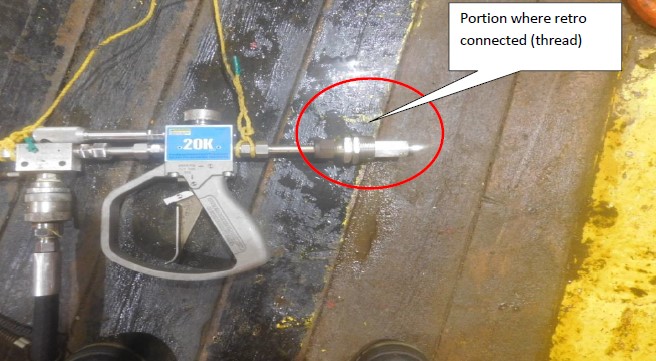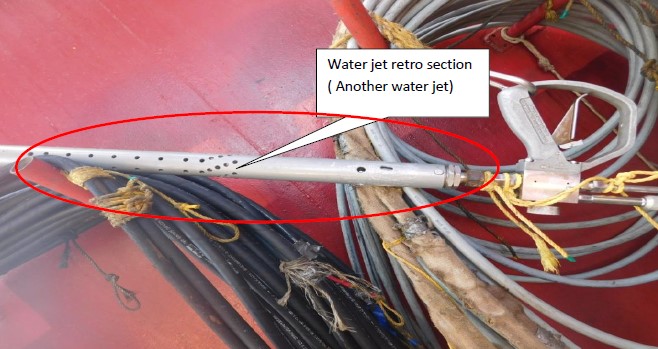LTI: diver injured during water jetting operations
What happened?
A saturation diver suffered a lost time injury (LTI) to his left arm during subsea high-pressure water jetting operations. The incident occurred when the water jet gun failed, and a part came off the gun. The diver was recovered to the bell and the water jet gun to the surface. The diver received first aid in the bell and further treatment later in the chamber. He was subsequently decompressed and transferred to hospital. Though an LTI, the injury was not severe, and it was expected that the diver would return to his duties within months.

What went wrong? What were the causes?
- Equipment failure: locking bolts on the water jet retro came loose;
- Unsafe design or construction: locking nuts did not have a holding mechanism besides the threads available;
- Improper worker training/familiarization: manufacturer manuals provided were not available at worksite. There was no awareness of the need for a planned maintenance system (PMS) for high pressure equipment of this sort;
- Improper maintenance: it was observed during investigation that maintenance was not carried out in accordance to manufacturer’s recommendations.


What actions were taken? What lessons were learned?
- Management of change (MoC) prepared for required changes;
- Ensure equipment is maintained in accordance with Code of practice for the use of high pressure jetting equipment by divers (IMCA D 049) and any manufacturer’s recommendations;
- Additional controls put in place to ensure the water jetting equipment is in safe condition, including checking condition of diffuser and locking nuts;
- Further awareness briefing given to dive team regarding checks of the equipment as per the manufacturer’s recommendations.
Members may wish to look at the following incidents:
Safety Event
Published: 20 July 2018
Download: IMCA SF 15/18
IMCA Safety Flashes
Submit a Report
IMCA Safety Flashes summarise key safety matters and incidents, allowing lessons to be more easily learnt for the benefit of all. The effectiveness of the IMCA Safety Flash system depends on Members sharing information and so avoiding repeat incidents. Please consider adding safetyreports@imca-int.com to your internal distribution list for safety alerts or manually submitting information on incidents you consider may be relevant. All information is anonymised or sanitised, as appropriate.
IMCA’s store terms and conditions (https://www.imca-int.com/legal-notices/terms/) apply to all downloads from IMCA’s website, including this document.
IMCA makes every effort to ensure the accuracy and reliability of the data contained in the documents it publishes, but IMCA shall not be liable for any guidance and/or recommendation and/or statement herein contained. The information contained in this document does not fulfil or replace any individual’s or Member's legal, regulatory or other duties or obligations in respect of their operations. Individuals and Members remain solely responsible for the safe, lawful and proper conduct of their operations.
